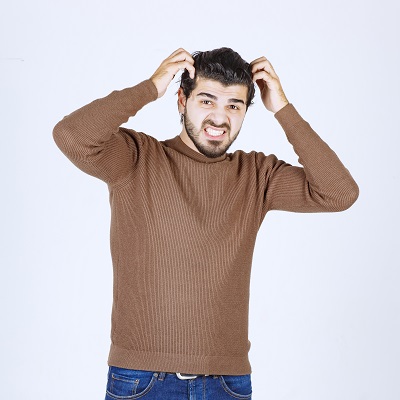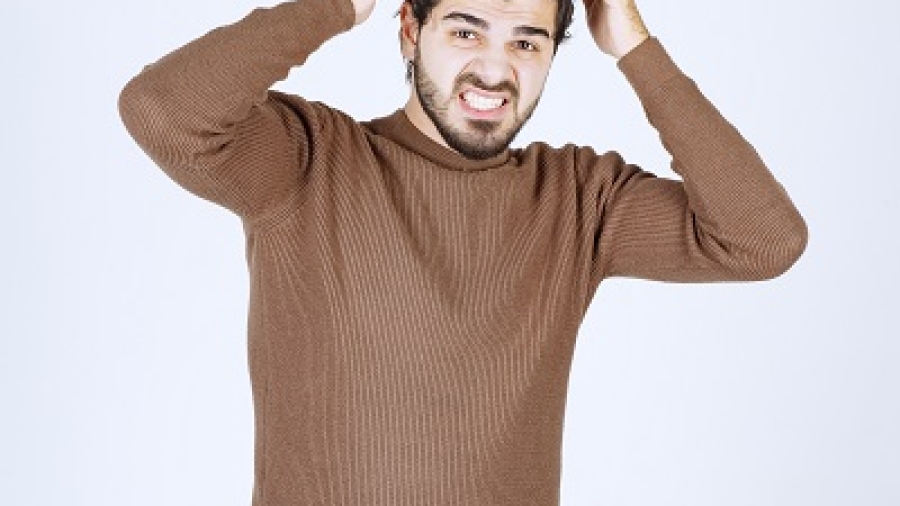 Have you ever had Fell Itchiness after Getting a Hair Transplant? You have invested in new hair, which is the best way to withstand constant itching, so imagine the agony. It can be annoying and leave you wondering if it’s worth it. However, there could be a wish. Knowing why this happens is essential.
Have you ever had Fell Itchiness after Getting a Hair Transplant? You have invested in new hair, which is the best way to withstand constant itching, so imagine the agony. It can be annoying and leave you wondering if it’s worth it. However, there could be a wish. Knowing why this happens is essential.
Expert surgeon Dr Naveed Azhar set transplant as a result of your scalp healing and acclimating to the new follicles. The procedure’s small cuts have the potential to aggravate sensitive skin. However, this discomfort is just temporary and manageable with the right treatment. Keep checking return as we unearth the causes of post-transplant itching and provide effective relief measures. Relax while learning how you can take care of your scalp so that your new hair may grow.
What is a Hair Transplant in Islamabad?
A procedure called Hair Transplantation in Islamabad has the goal of addressing hair loss. Usually the scalp’s sides or back—to the areas that are thin or balding. We call this process “transplantation.”
To numb the donor and recipient areas, a local anaesthetic is used at the beginning of the process. Following that, hair follicles are removed from the donor page either directly (Follicular Unit Extraction, or FUE) or as a strip of tissue (Follicular Unit Transplantation, or FUT).
The follicles are carefully implanted into small incisions created inside the recipient region after being retrieved. These transplanted follicles continue to develop and blend in with the surrounding hair. For both men and women experiencing hair loss due to injury health conditions, including inheritable hair loss (androgenetic alopecia), hair transplants are an effective treatment option. Results are slow, with a full rise often observed several months after the treatment.
Why Do I Feel Itchiness After Getting a Hair Transplant?
Itchiness following a hair transplant is common due to healing follicles and systemic skin infections. Your scalp is adjusting to the new hair explosion, which is a natural reaction. Pain may also result from the small incisions produced during the transplant procedure. Fortunately, this sensation is usually transient and effectively controlled with minimal attention. Understanding those factors aids in applying the appropriate treatments, relieving discomfort, and promoting healthy hair growth.
Knowing Itchiness Following Hair Transplantation Process:
- To provide comfort during certain points during the procedure, the donor and recipient sites are first made numb with a local anaesthetic.
- Either for my part (Follicular Unit Extraction, or FUE) or as a strip of tissue (Follicular Unit Transplantation, and FUT), hair follicles are meticulously removed from the donor website.
- For more natural-looking results, tiny incisions are made inside the recipient area where hair follicles may be transplanted. Specific techniques are used.
- Grafting involves carefully transplanting extracted hair follicles into well-organized incisions, paying attention to the density, angle, or course to get the best coverage possible.
- After the transplant, depending on the procedure employed, the donor’s region is either sutured shut or allowed to heal naturally.
- Patients receive instructions on wound care, follow-up visit scheduling, tracking of progress, and non-invasive treatment recommendations for optimal hair growth.
Advantages of Handling Hair Transplant Recovery:
- Natural Hair Growth: Transplanted hair grows naturally, integrating well with native hair to provide a useful final product.
- Enhanced Emotional Wellness: Growing back a full head of hair can reduce stress and enhance general mental health, which leads to an even more positive attitude toward life.
- Minimal Downtime: Most patients return to routine activities within a few days to weeks of restoration, which is quite quick.
- Impact on Lifestyle: Growing back hair may completely change daily living, improving social connections and career opportunities while also allowing for more styling options.
The Cost of Hair Transplant in Islamabad:
The cost of Hair transplant in Islamabad typically ranges between PKR 85,000 and PKR 400,000. However, since the cost of this treatment becomes apparent once a patient’s health has been evaluated, the cost differs from person to person. It won’t charge evenly either since different people have different worries. A few things may affect how much the treatment costs.
Book Your Consultation Now!
Please complete the form below to schedule a consultation for a Hair Transplant in Pakistan. To make an appointment, contact the clinic by phone or chat. We will schedule your advance visit with our Royal Hair Transplant experts.




Leave Your Comment